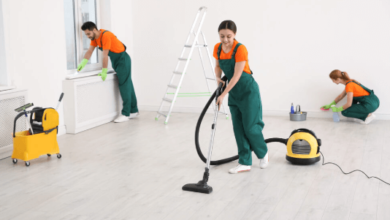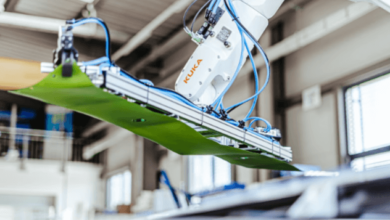5 Recommended Tips for Safety in Industrial Environment

Industrial environments can be dangerous if safety rules are not followed. Factories, warehouses, and construction sites have heavy machinery, chemicals, and high temperatures, which can cause serious accidents. That is why it is important for both workers and employers to focus on safety.
By taking the right steps, many accidents can be avoided, and the workplace can become a safer place for everyone. Here are five important tips to improve safety in an industrial environment.
1. Provide Proper Training and Safety Gear
One of the most important steps to keep workers safe is to provide proper training. Every worker should know how to use machines, handle chemicals, and respond to emergencies. Training sessions should be done regularly so that workers do not forget safety rules.
Along with training, workers should always wear the right safety gear. This includes helmets, gloves, safety glasses, and boots. In some industries, workers may need ear protection or fire-resistant clothing. Employers must ensure that all safety gear is in good condition and used correctly.
See also: Enhance the Art: Superior Protection Techniques for Garden Furniture Excellence Introduction
2. Install High-Efficiency Steam Boilers
Many industries use steam boilers for heating, power generation, and other processes. However, old and inefficient boilers can be a safety risk. High-efficiency steam boilers are designed to operate more safely and reduce energy waste. They have advanced safety features that help prevent overheating and pressure buildup, which can cause explosions.
Using high efficiency steam boilers not only improves safety but also reduces fuel consumption and operating costs. Industries that invest in modern boiler systems create a safer working environment while saving money in the long run.
3. Maintain Equipment Regularly
Machines and tools in industrial environments need regular maintenance to function properly. Faulty equipment can cause accidents, injuries, and even fatalities. Employers should have a strict schedule for checking and repairing machines.
If any equipment shows signs of damage, it should be repaired or replaced immediately. Workers should also be encouraged to report any unusual sounds, vibrations, or leaks from machines. A well-maintained workplace is a safe workplace.
4. Implement Oil Spill Containment Measures
Industries that use oil and chemicals should have proper oil spill containment measures. Oil spills can create slippery surfaces, leading to accidents. They can also cause environmental pollution, which can be harmful to both workers and the surrounding community.
To prevent spills, industries should store oil in secure containers and use spill-proof equipment. If a spill does occur, there should be quick cleanup procedures in place, including absorbent materials and spill containment barriers. By managing oil spills properly, industries can ensure a safer and cleaner work environment.
5. Establish Emergency Response Plans
Even with all precautions, emergencies can still happen. That is why every industrial site must have a clear emergency response plan. This includes fire drills, first-aid training, and evacuation procedures. Workers should know where to go and what to do in case of fire, chemical leaks, or other hazards.
Emergency exits should always be clear, and fire extinguishers should be placed in easily accessible locations. First-aid kits should be available, and some workers should be trained in basic medical assistance. A well-prepared team can save lives during an emergency.
Conclusion
Safety in an industrial environment is not something to take lightly. By providing proper training, maintaining equipment, using high-efficiency steam boilers, implementing oil spill containment measures, and establishing emergency response plans, industries can reduce risks and create a safer workplace.
When safety is a priority, workers can perform their jobs without fear, and industries can operate smoothly without unexpected accidents.






